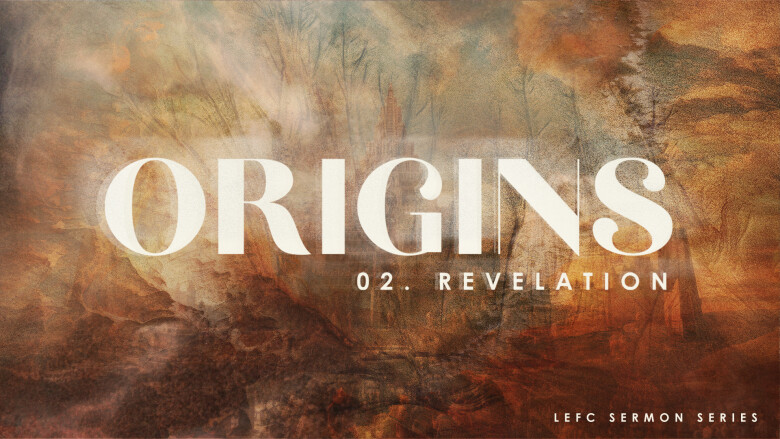Origins
Making peace in complicated situations
Review: We are now tracking in Genesis with the story of Jacob. These past two weeks we have learned about God’s choosing of Jacob over Esau, Jacob’s flawed character, and God’s intervention into his life which led to a significant turning point for Jacob. He now knows the God of Abraham and Isaac, not just knowing about him.
While God is certainly refining Jacob’s character, there are some consistent sins that keep showing up and Jacob continues to suffer relational consequences for them. He has had to flee his brother Esau and now we will see that has to flee from his uncle and soon to be father-in-law Laban.
Context: Jacob has met up with his mother’s brother. He has fallen in love with Rachel and agrees to work for seven years to have her as his bride. Laban deceives him and gives him a different daughter, Leah. Jacob is forced to commit to another 7 years to earn the right to have Rachel as his wife. So, he marries two women in a matter of days and works for a total of 14 years. He stays an additional six years to earn enough to be self-supporting. During these 20 years the relationship between Jacob and Laban has become significantly if not irreversibly strained and broken. They have deceived each other, and Laban has become quite oppressive. Jacob was suffering the effects of manipulation and deception, a character issue he also possesses.
The time has come to run.
Read: Genesis 31:1-20
Have you had a relationship that was so fractured where the layers of hurt both ways are so complicated that there feels like there is no hope to find peace let alone reconciliation?
Reconciliation requires agreement on facts and a commitment to fully restored relationship. This may be impossible to consider given the brokenness built over time.
Progression of a broken relationship.
- Hurt from rejection, oppression, and embezzlement.
- Hopelessness due to layers of brokenness.
- Fear—mood has changed where bitterness is evident. Future is unsure.
- Flight—run! Panic sets in and escaping the problem seems to be the only recourse.
Read: Genesis 31:22-55
Jacob has a three day start and on the 10th day Laban catches up.
You cannot outrun broken relationships. You will have to reckon with them.
- Peace will be fleeting.
- Other relationships will provoke the pain that has been festering under the surface.
If you cannot outrun it, how do you reconcile or at least come to a place of peace regarding relational brokenness?
Reconciliation may not be possible, but can peace be made?
Making peace in a complicated situation.
- Acknowledge the impasse. (38-42)
- It may be impossible to sort through fault and how you got there. That is ok.
- Exhaustion because of conflict is no longer desired.
- Can we call a truce?
- Propose a covenant. (44)
- State a desired course.
- Speak to boundaries that protect each other and perhaps other people.
- Build a heap that testifies. (45-53)
- Do, write, or build something that will testify between you the covenant.
- Testify! Let others know, to help you and them lay their weapons down. (46b)
- This type of sacrificial alter that included a meal was one that testifies to being “grateful to God for a blessing or an answer to prayer.” Goldingay
- Embrace the new state of the relationship. (53-54)
- Cement it with some form of good will or fellowship.
- Practicing a new normal will be important for all those connected to the relationship.
God built a heap with us. Romans 5:1-11
- It too is a pile of stones, but with a wooden cross erected from it.
- Making peace where it was not thought possible.
- This peace being made leads to a path of ultimate reconciliation where our grievances no longer define our relationship but rather it is defined by grace and mercy.
- The same peace made between you and God can be made in the most complicated of situations. This pleases God.
- We come to a table that brings us to the shadow of the Cross—the heap God erected. We eat together in thanks to the greatest blessing we have ever received.
Song- Jesus Paid it All
2 Corinthians 5:16-21 “So from now on we regard no one from a worldly point of view. Though we once regarded Christ in this way, we do so no longer. 17 Therefore, if anyone is in Christ, the new creation has come:[a] The old has gone, the new is here! 18 All this is from God, who reconciled us to himself through Christ and gave us the ministry of reconciliation: 19 that God was reconciling the world to himself in Christ, not counting people’s sins against them. And he has committed to us the message of reconciliation.20 We are therefore Christ’s ambassadors, as though God were making his appeal through us. We implore you on Christ’s behalf: Be reconciled to God. 21 God made him who had no sin to be sin[b] for us, so that in him we might become the righteousness of God.”
Matthew 5:9 “Blessed are the peacemakers, for they will be called children of God.”
Series Information

It is not likely you can start a book in the very middle of it and be able to understand what is going on. In the same way, understanding Jesus without having the context of Genesis would be difficult as well. In a society that has little to no biblical context, we need to be able to convey the beginning of the Bible in a manner that would explain why we need Jesus. This series will reconnect us with our origins, so that we can understand and communicate how Jesus can change someones life.
